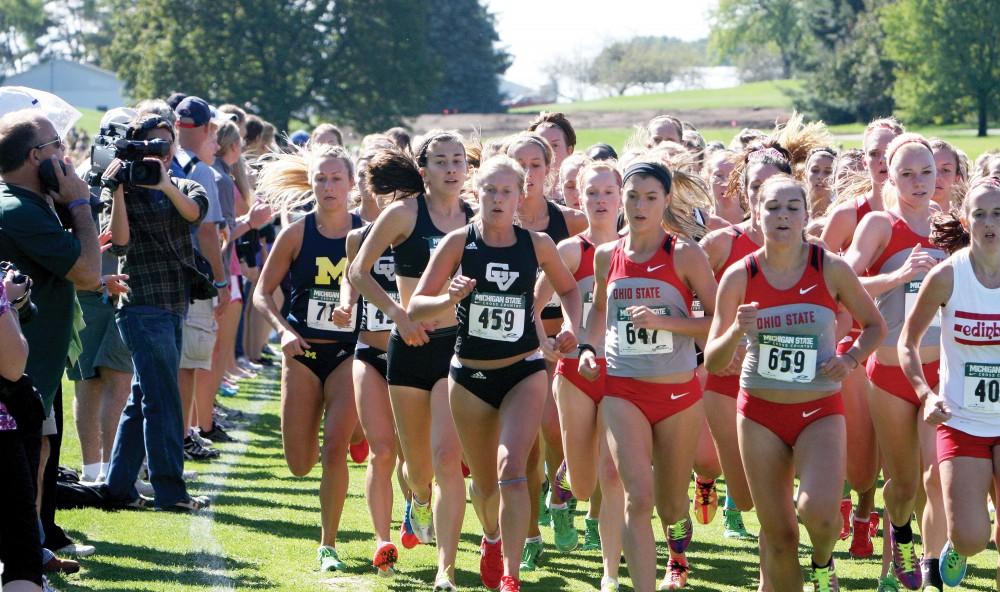GVSU runners talk diet, nutrition and … Gu?

GVL / Archive Allyson Winchester
Oct 30, 2014
The word “diet” makes most people cringe. It’s a touchy subject in the United States, between the drive to count calories and the short drive to a McDonald’s window. Barely is anyone talking about the fact that humans need the right food to fuel their bodies.
Members of the Grand Valley State University cross country program have learned that nationally recognized speeds go hand-in-hand with a proper diet. Jerry Baltes, who has coached the No. 1 Laker women to three national championships in four years, is big on his athletes eating enough iron-rich foods — like spinach — and getting enough protein after workouts to help their bodies recover.
Kyle Flores, a runner for the No. 2 GVSU men, said the team usually goes by the 4-to-1 ratio, which means four carbs to one protein in a given meal. Flores said he burns about 2,500 calories in a long run, so he has to eat about 2,500 calories or more daily to maintain his strength.
“People think we eat a lot because we are working out on a regular basis, which means we can eat whatever we want, but we do try to eat healthy,” he said.
One of the stranger foods consumed by runners is Gu, which is exactly what it sounds like: a small package of liquid that is full of calories and sometimes caffeine to keep a runner going. Flores says he typically has one before he races.
His favorite flavor? Salted Caramel.
GVSU sophomore Kendra Foley said Baltes usually gives his athletes a lot of leeway, however, when it comes to their diet. He assumes they know their bodies better than anyone else, plus men and women usually approach their dieting habits very differently.
“Men and women runners are expected to have different diets,” said GVSU senior Hannah Osborn. “Not in the type of foods they consume, but in the amount of calories they consume.
“In general, most guys are bigger and run a greater distance than girls and therefore need to consume more calories since they burn more. If they run the same amount of mileage, I don’t believe they should need different diets even if the guys do run faster.”
The amount of food consumed is closely correlated to the amount of miles ran, except when it comes down to the meal before race time. Foley said she usually eats light before an event, and sticks to oatmeal and coffee before a morning race.
“The coffee helps wake me up and washes me out,” Foley said.
While the GVSU runners do their best when it comes to diet, there’s not always a clear-cut science behind their choices. Osborn, for example, says she just likes to eat whatever sounds good.

























